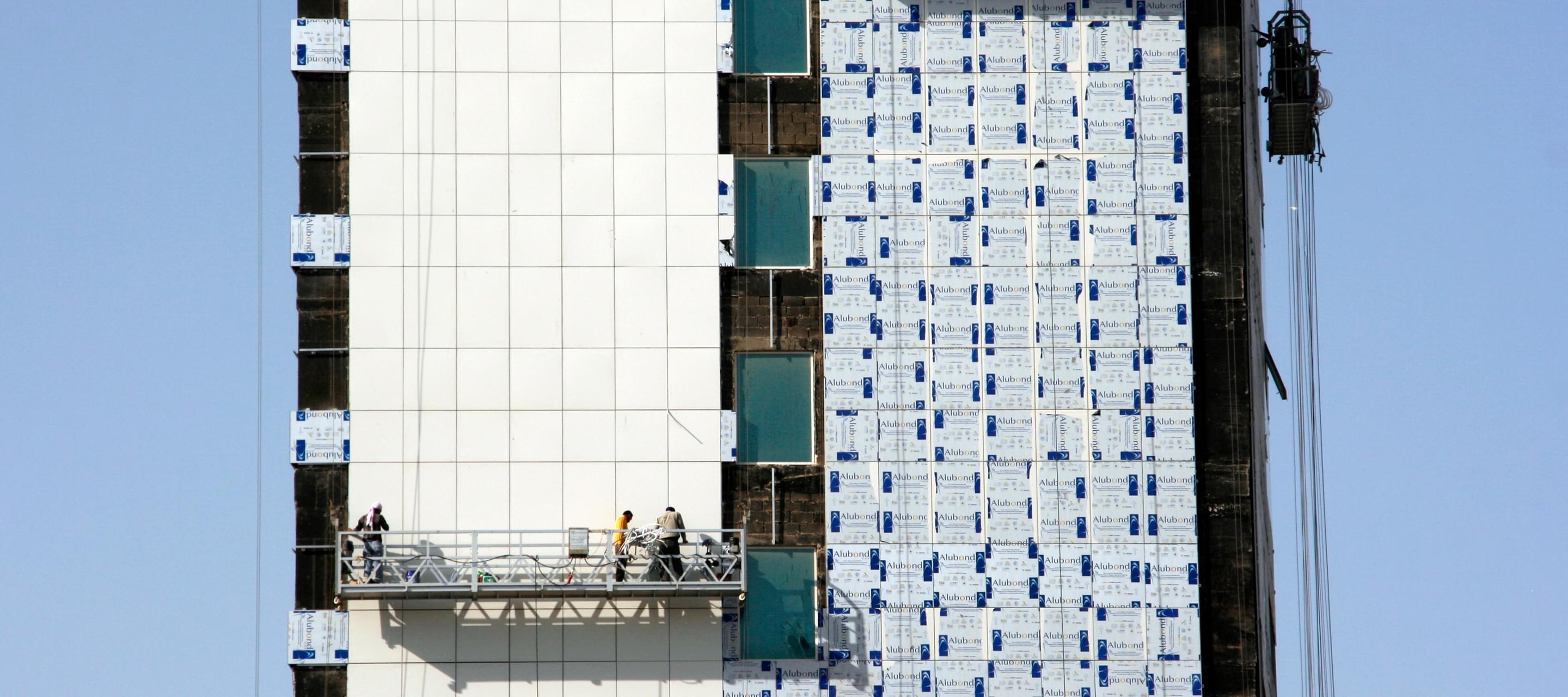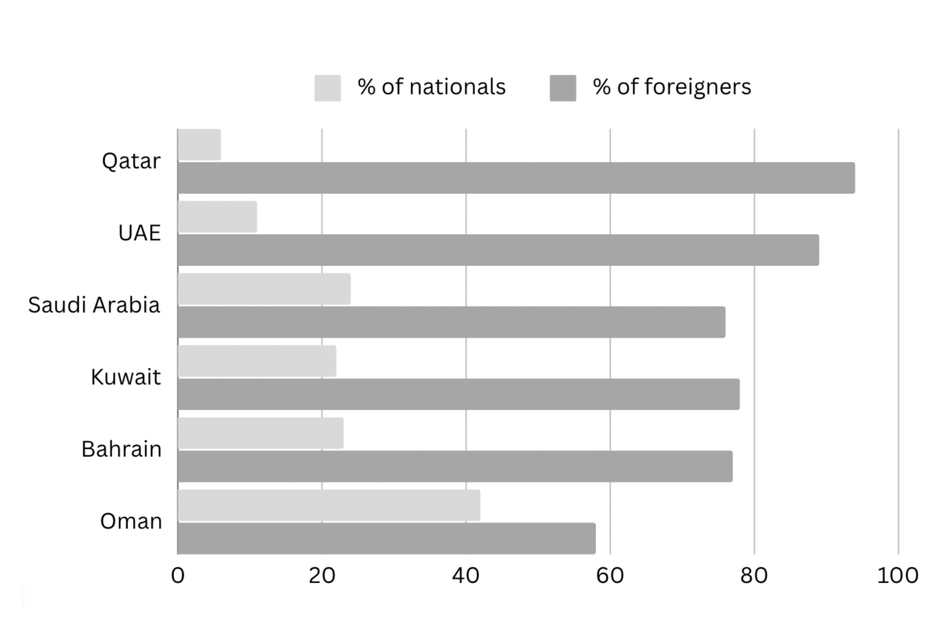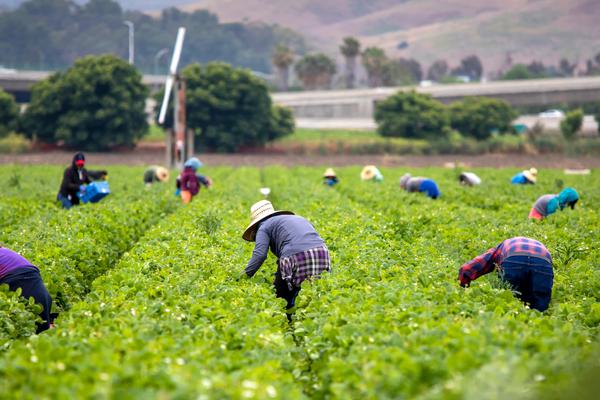How does economic diversification impact workers in the GCC?
14 June 2024

Economic diversification is the process of transitioning an economy away from reliance on a single sector or source of income to multiple sectors and markets.
This kind of economic shift is currently underway in the Gulf Cooperation Council (GCC) region, where Bahrain, Kuwait, Oman, Qatar, Saudi Arabia and the United Arab Emirates are experiencing rapid socio-economic transformation.
To reduce reliance on the oil and gas sector that has sustained most of the regions' economies for the last several decades, each of the six countries has made public its vision for the future; while this includes commonalities including upskilling local workforces and boosting industries including tourism and renewable energy, there is significant diversity in how these countries see their global role changing.
How are economic diversification and the green transition interconnected?
The GCC region is undergoing a transformative phase focused on economic diversification and sustainable development. Historically reliant on oil and gas, GCC economies are now striving to diversify their revenue sources through ambitious government-led initiatives like Saudi Vision 2030 and We the UAE 2031 that shift focus from high-risk, vulnerable and/or high-carbon markets and sectors to economies. Each of these strategies is aligned with UN Sustainable Development Goals (SDGs) and include national green transition policies aimed at creating a more environmentally and socially sustainable future for the region.
A strong driver behind economic diversification and green transition plans in the GCC is the well-documented impact of climate change in the region being experienced now and in the future. The World Bank estimates that up to 100 million people in the Middle East, including the GCC, will suffer from water stress by 2025, with portions of the region expected to become uninhabitable by the end of the century due to water scarcity and high temperatures.
How does economic diversification impact workers?
A common denominator of economic diversification and green transition plans is the creation and acceleration of new and existing industries, which in the GCC include tourism, technology and renewable energy.
The success of executing economic diversification strategies is largely contingent on the attraction of foreign talent, as well as the upskilling and reskilling of national workforces. Existing labour and skills shortages are expected to widen due to several factors, including rapid economic diversification, demographic shifts, and evolving industry demands.
Currently, nationals in GCC countries primarily work in the public sector, while foreign workers, including low wage migrant workers, account for the largest share of employees in the private sector. The UAE and Qatar have the highest rates of foreign workers in private sector employment, approximately 90% of the total workforce. Although all GCC countries face the challenge of ensuring future employment for nationals while maintaining reliance on foreign workers to fill certain roles, the urgency of this issue varies across national contexts since GCC countries’ demographics and priority areas diverge significantly.

For countries that rely heavily on foreign labour, there is a risk that transition processes will exacerbate poor working conditions and increase workers’ vulnerability to exploitative practices. However, changes in GCC countries’ regulatory frameworks and their growing willingness for cooperation regionally and globally provide an opportunity for positive change, despite questions of how effectively legal changes are being implemented on the ground. Labour reforms in Qatar, for example, abolishing the controversial labour sponsorship system (Kafala); and introducing a minimum wage, are notable examples of reform.
What does this mean for business?
Economic diversification and related green transition plans create ample opportunities but also enhanced responsibilities for companies operating in the GCC region. Throughout this process, both governments and businesses have a responsibility to respect and advance worker welfare and account for future labour needs through, for example, ensuring decent working conditions and investing in filling future skills gaps. Existing challenges such as poor working conditions and lack of fair wages also need to be addressed to ensure they don’t persist post-transition.
Whereas governments are required to provide robust regulatory frameworks and enforcement mechanisms in line with international standards, businesses have a responsibility to respect internationally recognised human rights and labour standards in line with the UN Guiding Principles on Business and Human Rights. Businesses can also use their leverage to ensure that governments and partners strengthen policies and accountability mechanisms, providing an environment conducive to responsible business practices.
Since economic diversification and green transition plans will require increased collaboration amongst businesses across sectors, there is a risk that sub-standard working conditions will be perpetuated, and lower skilled workers – who will continue to play an important role in key sectors including construction and hospitality – will lose out in the shift towards knowledge-based economies. Anticipating this risk and building capacity around how to solve this issue within the GCC context will be key to promoting responsible business in the region.



